
Încă de la declanşarea războiului împotriva Crimeei din 2012 şi, anul trecut, a celui de-a doilea război împotriva Ucrainei, Vladimir Putin a susţinut sus şi tare că este victima unei provocări. Că Federaţia Rusă ar fi declanşat un război preventiv. Pentru că statele NATO şi-au încălcat angajamentele. Şi ameninţă prin extindere securitatea Rusiei. Acest argument e cap coadă fals.
Este extrem de important ca opinia publică din lumea întreagă, inclusiv din România, să fie edificată asupra unei realităţi transformate de Vladimir Putin în casus belli. Este sau nu este de tip preventiv războiul declanşat de liderul de la Moscova? Se află sau nu se află la originea deciziilor militaro-politice adoptate de Kremlin o încălcare a angajamentelor statelor NATO faţă de Federaţia Rusă? De răspunsul la această întrebare depinde în definitiv modul în care istoria de azi şi istoria de mâine judecă şi califică acest război. Dacă statele NATO şi-au încălcat vreun angajament şi dacă ele, prin extindere, ameninţă cu adevărat Federaţia Rusă, atunci războiul lui Putin ar putea fi calificat drept un război de apărare, iar invadarea Ucrainei drept expresie a unui război preventiv. Dacă însă se dovedeşte contrariul, atunci acest război este de la început până la sfârşit un act criminal.
Voi începe prin a afirma că în niciuna dintre arhivele de la Moscova, de la Berlin, de la Washington sau din altă parte nu există niciun document semnat prin care statele NATO sau NATO ca atare şi-ar fi asumat neextinderea. Nimeni nu a putut şi nu poate să scoată la iveală un asemenea document. Mai mult decât atât. Nu există nicio stenogramă a unor convorbiri politice purtate la vârf înaintea căderii Zidului Berlinului sau ulterior, din care să rezulte că vreun lider NATO s-ar fi angajat în vreun fel în numele organizaţiei ca aceasta să nu se extindă. Vladimir Putin lansează acuzaţii într-o cadenţă care pentru susţinătorii săi, mai ales cei din Federaţia Rusă, dar şi pentru mulţi oameni naivi, dobândesc un anumit grad de credibilitate, susţinând sus şi tare - prima dată a făcut-o în 2007, la Conferinţa de Securitate de la Munchen - că statele NATO şi-au încălcat în mod flagrant angajamentul. Un angajament pe care însă nici Putin nici nimeni altcineva nu a reuşit să-l dovedească la o distanţă de peste 32 de ani de la căderea Zidului Berlinului.
Atunci Mihail Gorbaciov, secretarul general al CC al PC al URSS, s-a întâlnit pe rând cu George Bush, vicepreşedintele Statelor Unite, şi cu preşedintele Ronald Reagen. Dialogurile care au avut loc sunt consemnate în stenograme. Stenogramele sunt accesibile. Nu numai că Rusia, pe atunci încă Uniunea Sovietică, nu a primit absolut nicio garanţie privin non-extinderea NATO, dar, mai mult decât atât, acest subiect nici măcar nu a fost discutat. Decât în trecere. Şi iată cum. Mihail Gorbaciov şi-a exprimat o temere şi anume că, prin unificarea celor două Germanii, care era subiectul la ordinea zilei după căderea Zidului Berlinului, forţele NATO ar putea să intre în Germania de Est. Referitor la acest subiect, singurul document care consemnează existenţa unui dialog spune că, în februarie 1990, James Baker, secretarul de stat al Statelor Unite, într-o discuţie la Moscova cu Mihail Gorbaciov, i-ar fi spus acestuia că este mai bine să existe "o Germanie unificată în cadrul structurii politice şi militare a NATO, decât în afara acestei structuri". Iar Gorbaciov nu a făcut niciun comentariu. În ziua următoare, liderul soviectic s-a întâlnit cu cancelarul Germaniei de Vest Helmut Kohl, cu care a purtat un lung dialog. Nu s-a discutat absolut nimic despre extindere. În 1999, NATO primeşte în alianţă primele trei state care fuseseră membre ale Pactului de la Varşovia, aşa-zisul grup de la Vişegrad, Polonia, Ungaria şi Republica Cehă. Oficialii de la Kremlin nu au absolut nicio obiecţie care ar putea fi identificată în arhivele cuprinzând documente oficiale. În 1914, Gorbaciov, într-un interviu acordat publicaţiei Kommersant, afirmă negru pe alb: "Subiectul extinderii NATO nu a fost niciodată discutat şi nu a fost ridicat în acei ani". Primul preşedinte ales al Rusiei, Boris Elţîn, într-o convorbire oficială cu Bill Clinton, afirmă: "Înţeleg că nicio posibilă integrare a ţărilor est-europene în NATO nu va duce automat la faptul că aliaţii se vor întoarce cumva împotriva Rusiei". Este o simplă afirmaţie, faţă de care Clinton ar fi putut foarte bine să dea asigurări pozitive. Dar nici măcar acest lucru nu rezultă din stenograme.
Iar acum ne apropiem de momentul Vladimir Putin şi de legenda falsă pe care acesta a creat-o. În 2002, NATO şi Rusia semnează "Actul Fondator NATO-Rusia". Nici în acest Act Fondator, care este un document destul de vast, în vigoare şi astăzi, nu se precizează asolut nimic referitor la non-extinderea NATO. Scandalul izbucneşte în 2007, la Conferinţa de Securitate de la Munchen, unde Vladimir Putin are literalmente o explozie nervoasă, acuzând alianţa de duplicitate şi de faptul că, prin extinderea ei, Rusia este ameninţată. Şi, în fine, în 2008, la Bucureşti are loc summitul NATO, în prezenţa lui Vladimir Putin, unde alianţa a exclus soluţia unei integrări rapide a Georgiei şi Ucrainei în structurile NATO, dar a decis textual că aceste state "urmează să ni se alătre în cele din urmă".
Mai este ceva de adăugat? Dacă da, o vor face cu certitudine specialiştii istoriei recente. Dar cu siguranţă nu mai are de unde să apară vreun document cât de cât relevant prin care legenda creată şi acreditată de Vladimir Putin să poată fi susţinută. Iar dacă Federaţia Rusă nu este într-o postură de apărare ci, dimpotrivă, într-una agresivă, dacă statele NATO nu şi-au încălcat niciun angajament, ci, dimpotrivă, au dovedit corectitudine prin deciziile luate, atunci concluzia este una singură. Războiul declanşat de Federaţia Rusă este, fără niciun fel de alte nuanţe, un război agresiv, purtat prin mijloace criminale, iar Vladimir Putin nu poate prezenta niciun fel de argumente cum că Rusia s-ar afla într-o postură de apărare.

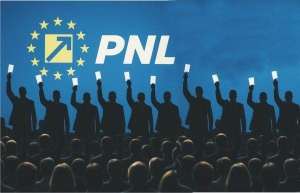




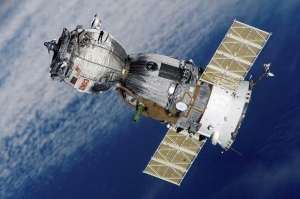
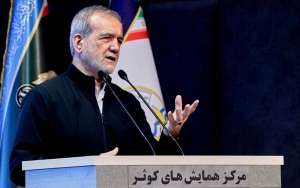
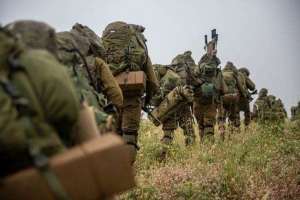


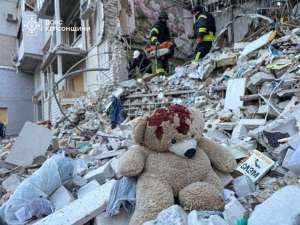


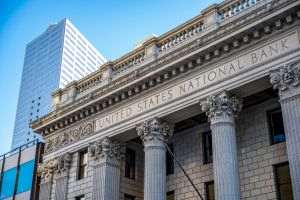






























1. Titlu
(mesaj trimis de Protaru în data de 27.02.2023, 11:08)
Concluzia este ca daca nu exista o hartie care sa garanteze rusilor ca natoistii nu intentioneaza sa ajunga la portile Moscovei, rusii trebuie sa asiste pacifist la desfasurarea de forte natoiste in jurul granitelor lor.
1.1. fără titlu (răspuns la opinia nr. 1)
(mesaj trimis de antonim în data de 27.02.2023, 15:30)
Și-au lărgit granița cu NATO, deșteaptă mutare.
1.2. fără titlu (răspuns la opinia nr. 1)
(mesaj trimis de anonim în data de 27.02.2023, 15:56)
Si drept rezultat, din cauza nervilor, putin a inceput din februarie 2022 sa dea cu bombe intr o tara vecina si in fratii de sange ukrainieni, sa violeze si sa tortureze, sa darame din temelie orase si sate intregi!!!
Ce logica ruseasca este asta?
Normal ar fi trebuit sa se bata la masa tratativelor pt acea hartie care sa ii garanteze ca nato nu va avansa in timp!
1.3. fără titlu (răspuns la opinia nr. 1)
(mesaj trimis de anonim în data de 27.02.2023, 16:00)
NATO merge numai acolo unde este invitata si dorita, asa incat temerile rusilor sunt pur propagandistice. Nu NATO s-a extins spre est ci tarile din est s-au indreptat spre NATO pentru a-si asigura integritatea, independenta si securitatea.
Rusia confunda NATO, care se extinde la cerere si numai acolo unde este dorita, cu Rusia, care acapareaza teritoriile vecine, neinvitata si nedorita acolo.
2. fără titlu
(mesaj trimis de anonim în data de 27.02.2023, 11:37)
Ar fi bine de vizionat PE INTERNET filmul in care aomenii lui Zelnski dau foc unui
bloc de locuinte din Donbas in care erau rusi,iar cei care incearca sa iasa ii omoara in bataie,
IN REST NIMIC DE COMENTAT
2.1. fără titlu (răspuns la opinia nr. 2)
(mesaj trimis de anonim în data de 27.02.2023, 12:43)
asemenea prostii , ca sunt de pe internet, sau din surse demne de inncredere(!) , vor sa justifice o agresiune brutala , animalica. o lume intreaga vede cum dau rusii cu rachete in tot ce le iese in cale si niste imbecili vin cu insinuari si incheiate cu no comment
2.2. fără titlu (răspuns la opinia nr. 2.1)
(mesaj trimis de anonim în data de 27.02.2023, 13:20)
Este un conflict/razboi CU CELE MAI PUTINE
VICTIME CIVILE DIN ISTORIA RAZBOAIELOR,
textele propagandisice CNN este departe de adevar
2.3. fără titlu (răspuns la opinia nr. 2.2)
(mesaj trimis de anonim în data de 27.02.2023, 13:59)
Si daca ar fi o singura victima ar fi prea mult. Sunt 13 milioane de oameni care si-au pierdut casa, agoniseala de o viata in Ucraina. Dar tot se mai gasesc unii sa zica, dar ce e o problema?
Noaptea mintii.
2.4. fără titlu (răspuns la opinia nr. 2.1)
(mesaj trimis de anonim în data de 27.02.2023, 19:18)
Din curiozitate. La fel de indignat ai fost și la agresiunea americanilor împotriva Irakului?
3. fără titlu
(mesaj trimis de anonim în data de 27.02.2023, 14:32)
Petr Pavel, presedintele cehiei (general de armata,fost președinte
al Comitetului Militar al NATO) a declatat ca Ucraina nu poate pastra
teritoriile pierdute in urma conflictului cu Rusia,
intr-un interviu dat ziarului Suspline.
3.1. fără titlu (răspuns la opinia nr. 3)
(mesaj trimis de antonim în data de 27.02.2023, 15:27)
We maintain the argument that we support not only Ukrainian sovereignty but also territorial integrity, with their internationally recognized borders. So how could we push them into accepting a different story?
Mulțumim pt propagandă sovietică. Rușii au ocupat Cehoslovacia și au putut elibera teritoriile fără nicio problemă.
3.2. fără titlu (răspuns la opinia nr. 3.1)
(mesaj trimis de anonim în data de 27.02.2023, 19:31)
Comparatie total deplasata,
acum rusii au ocupat teritorii cu populatie majoritara rusa
3.3. fără titlu (răspuns la opinia nr. 3.2)
(mesaj trimis de anonim în data de 27.02.2023, 19:47)
Daca rusii voiau faceau si din Cehoslovacia teritoriu cu populatie majoritara rusa.
3.4. fără titlu (răspuns la opinia nr. 3.2)
(mesaj trimis de anonim în data de 27.02.2023, 21:20)
unde ai gasit informatii de acest fel?
3.5. fără titlu (răspuns la opinia nr. 3.4)
(mesaj trimis de anonim în data de 27.02.2023, 23:27)
Presa germana si media republicana americana
4. fără titlu
(mesaj trimis de anonim în data de 27.02.2023, 18:07)
O sa vedeti in vara, mai ales in augusrlt acest an ce v-au facut ucraineni in delta, prostaci de romani!
Bine va face, meritati mai mult decat ce-au facut in Bucovina , poate va mai vine ceva minte!
5. fără titlu
(mesaj trimis de anonim în data de 27.02.2023, 19:26)
Deci Rusia se extinde spre vest pt ca Nato se extinde spre est ? Unde e logica ? Si haideti sa ne uitam in istoria Rusiei...
6. fără titlu
(mesaj trimis de anonim în data de 27.02.2023, 20:43)
France 24
"The Soviet Union still existed and the countries of Eastern Europe were still part of the Soviet structures – like the Warsaw Pact – which was not officially dissolved until July 1991," said Amélie Zima, doctor of political science at the Thucydide Centre (Panthéon-Assas) in Paris. "We cannot speak of betrayal, because a chain of events that would rearrange the security configuration in Europe was about to take place."
In short, at a time when Westerners were offering the "guarantees" spoken of by Vladimir Putin, no one could have predicted the collapse of the USSR and the historic upheavals that followed.
"In addition, these promises were made orally and were never recorded in a treaty,” recalled Olivier Kempf, associate researcher at the Foundation for Strategic Research. "The turning point of NATO enlargement came much later, in 1995, at the request of the Eastern European countries."
Promisiunile au existat. Asta spun oamenii inteligenti si bine documentati citati de France 24.
6.1. fără titlu (răspuns la opinia nr. 6)
(mesaj trimis de anonim în data de 27.02.2023, 21:26)
Inca un pic si scot la iveala aia de la France 24 si un tratat semnat.
6.2. fără titlu (răspuns la opinia nr. 6.1)
(mesaj trimis de anonim în data de 27.02.2023, 22:09)
Nu poti ascunde adevarul
7. fără titlu
(mesaj trimis de anonim în data de 27.02.2023, 20:46)
O analiza istorica exceptionala facuta de americani pe baza arhivelor de la George Washington University. Pe scurt, au existat nu doar cateva asigurari (James Baker, "niciun cm spre est"), ci o serie de asigurari in multiple intalniri de-a lungul a catorva ani.
Washington D.C., December 12, 2017 – U.S. Secretary of State James Baker’s famous “not one inch eastward” assurance about NATO expansion in his meeting with Soviet leader Mikhail Gorbachev on February 9, 1990, was part of a cascade of assurances about Soviet security given by Western leaders to Gorbachev and other Soviet officials throughout the process of German unification in 1990 and on into 1991, according to declassified U.S., Soviet, German, British and French documents posted today by the National Security Archive at George Washington University.
The documents show that multiple national leaders were considering and rejecting Central and Eastern European membership in NATO as of early 1990 and through 1991, that discussions of NATO in the context of German unification negotiations in 1990 were not at all narrowly limited to the status of East German territory, and that subsequent Soviet and Russian complaints about being misled about NATO expansion were founded in written contemporaneous memcons and telcons at the highest levels.
The documents reinforce former CIA Director Robert Gates’s criticism of “pressing ahead with expansion of NATO eastward [in the 1990s], when Gorbachev and others were led to believe that wouldn’t happen.”[1] The key phrase, buttressed by the documents, is “led to believe.”
President George H.W. Bush had assured Gorbachev during the Malta summit in December 1989 that the U.S. would not take advantage (“I have not jumped up and down on the Berlin Wall”) of the revolutions in Eastern Europe to harm Soviet interests; but neither Bush nor Gorbachev at that point (or for that matter, West German Chancellor Helmut Kohl) expected so soon the collapse of East Germany or the speed of German unification.[2]
The first concrete assurances by Western leaders on NATO began on January 31, 1990, when West German Foreign Minister Hans-Dietrich Genscher opened the bidding with a major public speech at Tutzing, in Bavaria, on German unification. The U.S. Embassy in Bonn (see Document 1) informed Washington that Genscher made clear “that the changes in Eastern Europe and the German unification process must not lead to an ‘impairment of Soviet security interests.’ Therefore, NATO should rule out an ‘expansion of its territory towards the east, i.e. moving it closer to the Soviet borders.’” The Bonn cable also noted Genscher’s proposal to leave the East German territory out of NATO military structures even in a unified Germany in NATO.[3]
This latter idea of special status for the GDR territory was codified in the final German unification treaty signed on September 12, 1990, by the Two-Plus-Four foreign ministers (see Document 25). The former idea about “closer to the Soviet borders” is written down not in treaties but in multiple memoranda of conversation between the Soviets and the highest-level Western interlocutors (Genscher, Kohl, Baker, Gates, Bush, Mitterrand, Thatcher, Major, Woerner, and others) offering assurances throughout 1990 and into 1991 about protecting Soviet security interests and including the USSR in new European security structures. The two issues were related but not the same. Subsequent analysis sometimes conflated the two and argued that the discussion did not involve all of Europe. The documents published below show clearly that it did.
The “Tutzing formula” immediately became the center of a flurry of important diplomatic discussions over the next 10 days in 1990, leading to the crucial February 10, 1990, meeting in Moscow between Kohl and Gorbachev when the West German leader achieved Soviet assent in principle to German unification in NATO, as long as NATO did not expand to the east. The Soviets would need much more time to work with their domestic opinion (and financial aid fr om the West Germans) before formally signing the deal in September 1990.
The conversations before Kohl’s assurance involved explicit discussion of NATO expansion, the Central and East European countries, and how to convince the Soviets to accept unification. For example, on February 6, 1990, when Genscher met with British Foreign Minister Douglas Hurd, the British record showed Genscher saying, “The Russians must have some assurance that if, for example, the Polish Government left the Warsaw Pact one day, they would not join NATO the next.” (See Document 2)
Having met with Genscher on his way into discussions with the Soviets, Baker repeated exactly the Genscher formulation in his meeting with Foreign Minister Eduard Shevardnadze on February 9, 1990, (see Document 4); and even more importantly, face to face with Gorbachev.
Not once, but three times, Baker tried out the “not one inch eastward” formula with Gorbachev in the February 9, 1990, meeting. He agreed with Gorbachev’s statement in response to the assurances that “NATO expansion is unacceptable.” Baker assured Gorbachev that “neither the President nor I intend to extract any unilateral advantages fr om the processes that are taking place,” and that the Americans understood that “not only for the Soviet Union but for other European countries as well it is important to have guarantees that if the United States keeps its presence in Germany within the framework of NATO, not an inch of NATO’s present military jurisdiction will spread in an eastern direction.” (See Document 6)
Afterwards, Baker wrote to Helmut Kohl who would meet with the Soviet leader on the next day, with much of the very same language. Baker reported: “And then I put the following question to him [Gorbachev]. Would you prefer to see a united Germany outside of NATO, independent and with no U.S. forces or would you prefer a unified Germany to be tied to NATO, with assurances that NATO’s jurisdiction would not shift one inch eastward fr om its present position? He answered that the Soviet leadership was giving real thought to all such options [….] He then added, ‘Certainly any extension of the zone of NATO would be unacceptable.’” Baker added in parentheses, for Kohl’s benefit, “By implication, NATO in its current zone might be acceptable.” (See Document 8)
Well-briefed by the American secretary of state, the West German chancellor understood a key Soviet bottom line, and assured Gorbachev on February 10, 1990: “We believe that NATO should not expand the sphere of its activity.” (See Document 9) After this meeting, Kohl could hardly contain his excitement at Gorbachev’s agreement in principle for German unification and, as part of the Helsinki formula that states choose their own alliances, so Germany could choose NATO. Kohl described in his memoirs walking all night around Moscow – but still understanding there was a price still to pay.
All the Western foreign ministers were on board with Genscher, Kohl, and Baker. Next came the British foreign minister, Douglas Hurd, on April 11, 1990. At this point, the East Germans had voted overwhelmingly for the deutschmark and for rapid unification, in the March 18 elections in which Kohl had surprised almost all observers with a real victory. Kohl’s analyses (first explained to Bush on December 3, 1989) that the GDR’s collapse would open all possibilities, that he had to run to get to the head of the train, that he needed U.S. backing, that unification could happen faster than anyone thought possible – all turned out to be correct. Monetary union would proceed as early as July and the assurances about security kept coming. Hurd reinforced the Baker-Genscher-Kohl message in his meeting with Gorbachev in Moscow, April 11, 1990, saying that Britain clearly “recognized the importance of doing nothing to prejudice Soviet interests and dignity.” (See Document 15)
The Baker conversation with Shevardnadze on May 4, 1990, as Baker described it in his own report to President Bush, most eloquently described what Western leaders were telling Gorbachev exactly at the moment: “I used your speech and our recognition of the need to adapt NATO, politically and militarily, and to develop CSCE to reassure Shevardnadze that the process would not yield winners and losers. Instead, it would produce a new legitimate European structure – one that would be inclusive, not exclusive.” (See Document 17)
Baker said it again, directly to Gorbachev on May 18, 1990 in Moscow, giving Gorbachev his “nine points,” which included the transformation of NATO, strengthening European structures, keeping Germany non-nuclear, and taking Soviet security interests into account. Baker started off his remarks, “Before saying a few words about the German issue, I wanted to emphasize that our policies are not aimed at separating Eastern Europe fr om the Soviet Union. We had that policy before. But today we are interested in building a stable Europe, and doing it together with you.” (See Document 18)
The French leader Francois Mitterrand was not in a mind-meld with the Americans, quite the contrary, as evidenced by his telling Gorbachev in Moscow on May 25, 1990, that he was “personally in favor of gradually dismantling the military blocs”; but Mitterrand continued the cascade of assurances by saying the West must “create security conditions for you, as well as European security as a whole.” (See Document 19) Mitterrand immediately wrote Bush in a “cher George” letter about his conversation with the Soviet leader, that “we would certainly not refuse to detail the guarantees that he would have a right to expect for his country’s security.” (See Document 20)
At the Washington summit on May 31, 1990, Bush went out of his way to assure Gorbachev that Germany in NATO would never be directed at the USSR: “Believe me, we are not pushing Germany towards unification, and it is not us who determines the pace of this process. And of course, we have no intention, even in our thoughts, to harm the Soviet Union in any fashion. That is why we are speaking in favor of German unification in NATO without ignoring the wider context of the CSCE, taking the traditional economic ties between the two German states into consideration. Such a model, in our view, corresponds to the Soviet interests as well.” (See Document 21)
The “Iron Lady” also pitched in, after the Washington summit, in her meeting with Gorbachev in London on June 8, 1990. Thatcher anticipated the moves the Americans (with her support) would take in the early July NATO conference to support Gorbachev with descriptions of the transformation of NATO towards a more political, less militarily threatening, alliance. She said to Gorbachev: “We must find ways to give the Soviet Union confidence that its security would be assured…. CSCE could be an umbrella for all this, as well as being the forum which brought the Soviet Union fully into discussion about the future of Europe.” (See Document 22)
The NATO London Declaration on July 5, 1990 had quite a positive effect on deliberations in Moscow, according to most accounts, giving Gorbachev significant ammunition to counter his hardliners at the Party Congress which was taking place at that moment. Some versions of this history assert that an advance copy was provided to Shevardnadze’s aides, while others describe just an alert that allowed those aides to take the wire service copy and produce a Soviet positive assessment before the military or hardliners could call it propaganda.
As Kohl said to Gorbachev in Moscow on July 15, 1990, as they worked out the final deal on German unification: “We know what awa its NATO in the future, and I think you are now in the know as well,” referring to the NATO London Declaration. (See Document 23)
In his phone call to Gorbachev on July 17, Bush meant to reinforce the success of the Kohl-Gorbachev talks and the message of the London Declaration. Bush explained: “So what we tried to do was to take account of your concerns expressed to me and others, and we did it in the following ways: by our joint declaration on non-aggression; in our invitation to you to come to NATO; in our agreement to open NATO to regular diplomatic contact with your government and those of the Eastern European countries; and our offer on assurances on the future size of the armed forces of a united Germany – an issue I know you discussed with Helmut Kohl. We also fundamentally changed our military approach on conventional and nuclear forces. We conveyed the idea of an expanded, stronger CSCE with new institutions in which the USSR can share and be part of the new Europe.” (See Document 24)
The documents show that Gorbachev agreed to German unification in NATO as the result of this cascade of assurances, and on the basis of his own analysis that the future of the Soviet Union depended on its integration into Europe, for which Germany would be the decisive actor. He and most of his allies believed that some version of the common European home was still possible and would develop alongside the transformation of NATO to lead to a more inclusive and integrated European space, that the post-Cold War settlement would take account of the Soviet security interests. The alliance with Germany would not only overcome the Cold War but also turn on its head the legacy of the Great Patriotic War.
But inside the U.S. government, a different discussion continued, a debate about relations between NATO and Eastern Europe. Opinions differed, but the suggestion fr om the Defense Department as of October 25, 1990 was to leave “the door ajar” for East European membership in NATO. (See Document 27) The view of the State Department was that NATO expansion was not on the agenda, because it was not in the interest of the U.S. to organize “an anti-Soviet coalition” that extended to the Soviet borders, not least because it might reverse the positive trends in the Soviet Union. (See Document 26) The Bush administration took the latter view. And that’s what the Soviets heard.
7.1. fără titlu (răspuns la opinia nr. 7)
(mesaj trimis de anonim în data de 27.02.2023, 21:28)
nu te lasa fentat de propaganda CNN
7.2. fără titlu (răspuns la opinia nr. 7.1)
(mesaj trimis de anonim în data de 27.02.2023, 22:10)
Sunt oameni de stiinta de la univ americana citata. Nu din presa.
7.3. fără titlu (răspuns la opinia nr. 7.2)
(mesaj trimis de anonim în data de 28.02.2023, 00:24)
"oameni de știință de la univ. americana"
oamenii lui Soros cu catedra LMBTQ+
7.4. :)) (răspuns la opinia nr. 7.3)
(mesaj trimis de Oarecare în data de 28.02.2023, 05:32)
Sunt mai multe litere. Paleta e mai largă.
Hai să nu-i discriminam.
7.5. O țară care nu mai există (răspuns la opinia nr. 7)
(mesaj trimis de Coriolan în data de 28.02.2023, 08:05)
Promisiunile de mai sus, care sunt reluate și de France 24 au fost făcute unei țări care nu mai există. URSS a apus. Acum avem Federația Rusă. De ce ar fi ținut Occidentul de niște promisiuni făcute unei țări care a dispărut de pe hartă, fiind înlocuită de o multitudine de state naționale?